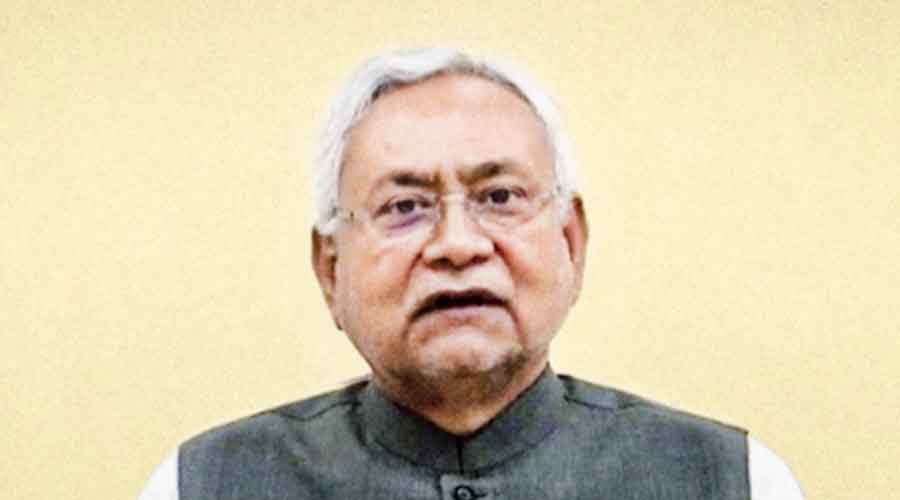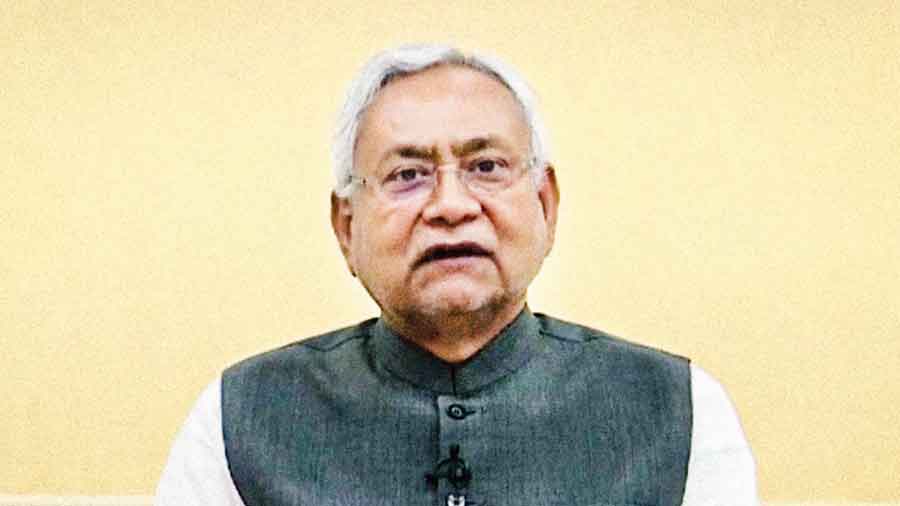The Lok Janshakti Party on Sunday announced it would contest the October-November Bihar polls alone, citing “ideological differences” with Nitish Kumar’s Janata Dal United, but pledged to support the BJP both before and after the election.
The move aroused suspicion of a plot to eat into JDU votes to the BJP’s advantage. The LJP said it would field candidates against the JDU but not the BJP and that after the polls, its MLAs would help form a BJP-led government.
Till late Sunday evening, the BJP had not responded to the LJP’s decision.
“At the state level and in the Assembly polls, due to ideological differences with JDU in the alliance, the LJP has decided to contest the elections outside the NDA,” an LJP statement said.
It did not explain what “ideological differences” had cropped up between the two parties. The LJP has in recent months been critical of Nitish’s performance, but without any reference to ideological issues.
Sunday’s statement came after the LJP’s parliamentary board had met under the chairmanship of Chirag Paswan, who has taken over the party’s reins from his father, Dalit leader and Union minister Ram Vilas Paswan.
“There is no bitterness between the LJP and the BJP. After the poll results, all elected MLAs of the LJP will be with the development path of respected Prime Minister Narendra Modi and form a BJP-LJP government,” the statement said, omitting to mention the JDU as a ruling coalition partner.
It added that it had wanted the BJP and not Nitish to lead the alliance in Bihar.
Asked whether the party, a minor regional outfit, could have dared take this step without the BJP’s backing, an LJP politician shot back: “Do you think it’s possible?”
He said Chirag had written to Modi, Union home minister Amit Shah and BJP chief J.P. Nadda well in advance conveying his party’s intention not to accept Nitish’s leadership. Ram Vilas has had major heart surgery and is in hospital, away from the political scene.
The LJP’s move suggests a well-scripted strategy to give the BJP the upper hand in Bihar, a state it has never been able to dominate because of Mandal politics and where it has had to play second fiddle to Nitish.
Weeks ago, when the BJP had declared the NDA would contest the Bihar polls under Nitish’s leadership, it had seemed to be making a magnanimous gesture despite feedback from the ground suggesting simmering anti-incumbency against the chief minister.
Modi too had lauded Nitish for his “sushashan” (good governance), seemingly endorsing his stature as the NDA’s leader in Bihar despite history between them.
Nitish had dumped the NDA months before the 2014 general election after Modi was made its prime ministerial candidate, won the 2015 Bihar polls in alliance with the Congress-RJD, then made a dramatic about-turn in 2017 to return to the BJP fold. This not just eroded his credibility but made it more than likely that the BJP would try to extract revenge at an opportune time.
After gladdening the JDU by endorsing Nitish’s leadership, the BJP began bargaining for an equal share of Bihar’s 243 seats. Sources said the seat shares had been worked out, with the BJP getting 121 and the JDU 122, although no official announcement has been made.
JDU sources said it had been agreed that the BJP would accommodate the LJP from its share while the JDU would do the same favour to former chief minister Jitan Ram Manjhi’s Hindustan Awam Morcha.
JDU managers thought they had played smart since the LJP would ask for more seats than Manjhi, and so their party would end up contesting more seats than the BJP.
Now with the LJP deciding to contest alone, the BJP could be poised to contest more seats than the JDU.
Boosted by a probable LJP bid to damage Nitish, the BJP could well end up with more seats than the JDU, weakening Nitish’s claim to the chief minister’s chair. Even if the BJP allows Nitish to remain in the hot seat in that scenario, his authority would have been seriously eroded.
BJP managers anyway expect anti-incumbency to hurt Nitish more than their party.
The BJP has therefore been deftly signalling to its loyal voters, the upper castes in particular, that the party is with Nitish and yet not with him.
“Our voters may not vote wholeheartedly for the JDU candidates. This could lead to the BJP winning more seats,” a BJP politician said.












